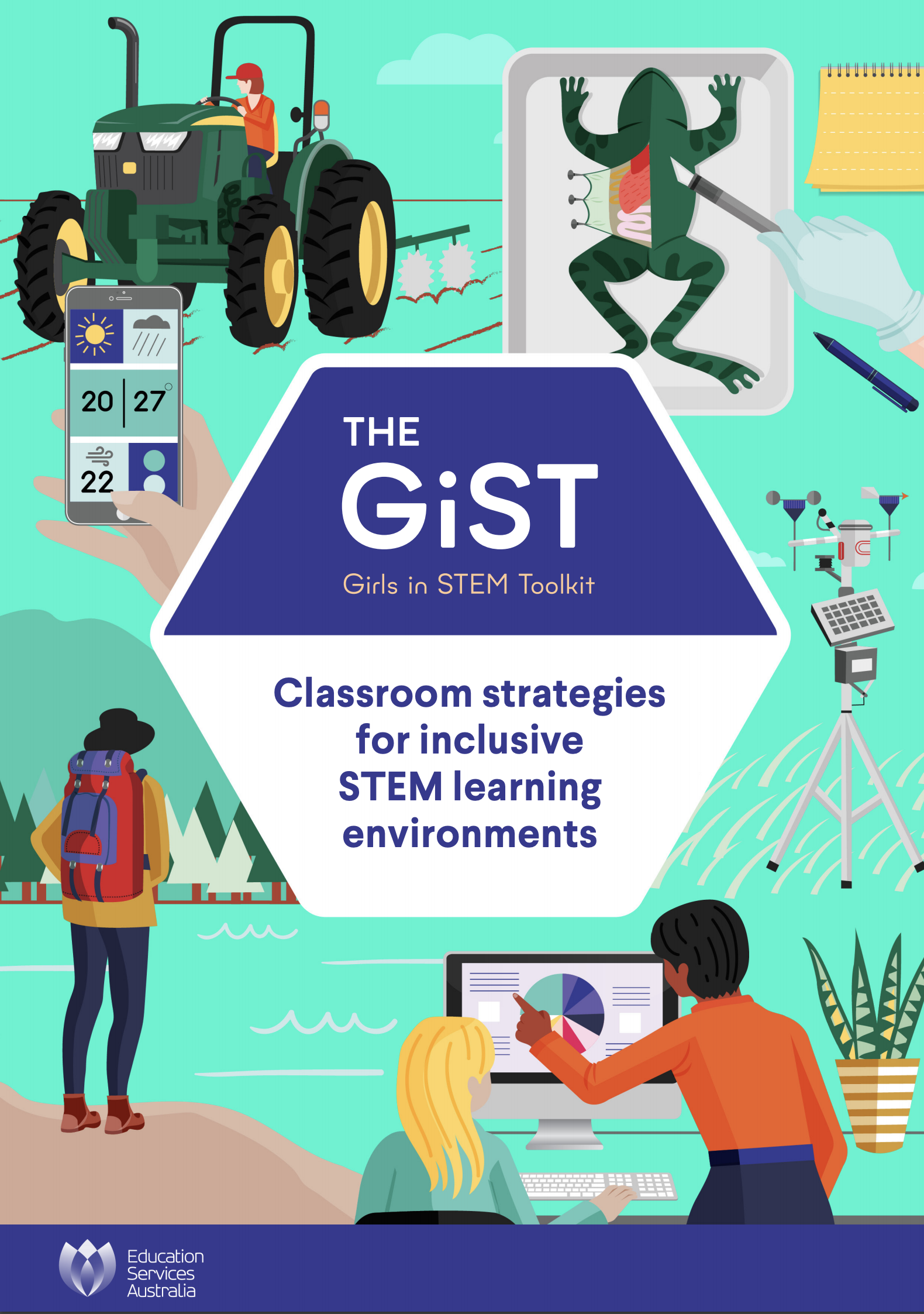The Girls in STEM Toolkit - Classroom strategies for inclusive learning environments
CSER Researcher, Dr Rebecca Vivian, partnered with Education Services Australia to undertake research into inclusive STEM learning and teaching to produce a practical evidence-based guide for teachers based on the 7 Principles for Inclusive STEM learning environments.
Despite the growing demand for STEM graduates and skills, Australian student interest and confidence in STEM subjects is relatively low. Schools and teachers play a pivotal role in engaging all learners in science, technology, engineering and mathematics (STEM) and in helping students realise their potential. This led to ESA and the GiST to undertake a review of literature by Melanie Isaacs to identify key strategies for designing inclusive STEM learning environments. In their work they identified the following as important:
- Create a gender-neutral learning environment.
- Ensure everyone gets hands-on.
- Design learning experiences to embrace context and problem-solving.
- Connect learning to careers and role models.
- Engineer collaborative learning.
- Provide choice and creative opportunities to demonstrate learning.
- Encourage a growth mindset.
The Classroom strategies for inclusive STEM learning environments guide is based on a systematic literature review of recent research undertaken by Rebecca about STEM education engagement, particularly for young girls and women. The guide presents a summary of key research findings aligned to GiST’s Seven Principles for Inclusive STEM Education, with suggested practical strategies and contemporary resources that teachers can use to bring these critical Principles to life to create an engaging and inclusive STEM classroom.
You can also watch the webinar by Rebecca and Martin (Digital Technologies Hub) that talks through these seven principles along with examples of practical resources you can use in the classroom.
Download your copy of the guide today!

